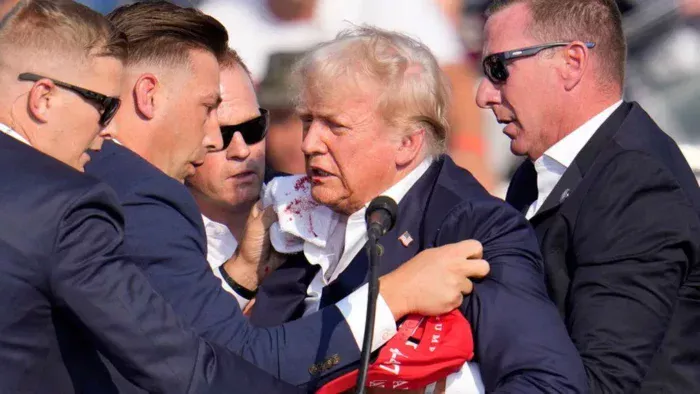The Washington Post has disclosed that leading members of the Secret Service consistently refused calls for extra security measures requested by former President Donald Trump’s team in the two years prior to the unsuccessful assassination attempt against him last week in Butler, Pa.
Agents assigned to the former president’s security detail requested magnetometers and additional Secret Service personnel to screen attendees at sporting events and other large gatherings, including rallies. Trump’s security team also requested more snipers and emergency response teams for outdoor events, according to four Secret Service sources who spoke with the Washington Post on condition of anonymity, the Post reported.
The requests, which remained undisclosed, were occasionally rejected by top-ranking officials from the Secret Service. Officials at the agency’s upper echelons provided various justifications for turning down the appeals, according to the sources, including insufficient personnel and resources.
“Those rejections — in response to requests that were several times made in writing — led to long-standing tensions that pitted Trump, his top aides and his security detail against Secret Service leadership, as Trump advisers privately fretted that the vaunted security agency was not doing enough to protect the former president,” the Washington Post reported.
Less than 12 hours after the assassination attempt on the morning of July 14, Secret Service spokesman Anthony Guglielmi denied reports that Trump’s security detail had been refused extra help when requested. “There’s an untrue assertion that a member of the former President’s team requested additional security resources & that those were rebuffed. This is absolutely false,” Guglielmi wrote in an X post. “In fact, we added protective resources & technology & capabilities as part of the increased campaign travel tempo.”
Kimberly Cheatle, the head of the Secret Service, who is facing calls for her resignation from members of both the major political parties following a failed assassination plot, repeated Guglielme’s denial during a discussion with the leadership of Trump’s campaign in Wisconsin on Monday, according to sources close to the meeting. After being asked for comment on the reports, Guglielmi stated that the agency had obtained additional information indicating that requests for assistance were indeed made by the former president’s security team. It is believed that these requests may have been denied by Secret Service headquarters, prompting an investigation into the matter.
“The Secret Service has a vast, challenging, and intricate mission,” the agency spokesman said in a statement. “Every day we work in a dynamic threat environment to ensure our protectees are safe and secure across multiple events, travel, and other difficult environments. We execute a comprehensive and layered strategy to balance personnel, technology, and specialized operational needs.”
A Secret Service official, speaking anonymously, revealed that the agency has struggled with limited resources since various scandals during the Obama years. These shortages have significantly impacted the availability of high-level resources, such as counter-sniper teams and uniformed officers who assist with screening event attendees for weapons using magnetometers, the Post said.
The agency’s Protective Operations Division is responsible for examining security applications for gatherings. During the weekend following the Butler incident, the Secret Service deployed several teams to counter snipers and a large number of agents to the Republican National Convention, in addition to a function for First Lady Jill Biden. The agency was also getting ready for an anticipated visit to Austin by President Joe Biden.
One official told the Post anonymously: “It’s just true — we don’t have the resources to secure him [Trump] like we did when he was president.”



